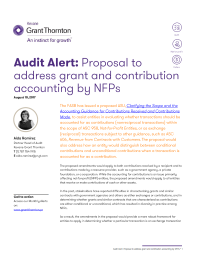-
Financial statements audits
Financial statement audits
-
Compliance audits
Compliance audits
-
Compilations and reviews
Compilations and audit
-
Agreed-upon procedures
Agreed-upon procedures
-
Corporate and business tax
Our trusted teams can prepare corporate tax files and ruling requests, support you with deferrals, accounting procedures and legitimate tax benefits.
-
International tax
Our teams have in-depth knowledge of the relationship between domestic and international tax laws.
-
Tax compliance
Business Tax
-
Individual taxes
Individual taxes
-
Estate and succession planning
Estate and succession planning
-
Global mobility services
Through our global organisation of member firms, we support both companies and individuals, providing insightful solutions to minimise the tax burden for both parties.
-
Sales and use tax and indirect taxes
SUT/ VAT & indirect taxes
-
Tax incentives program
Tax incentives program
-
Transfer Pricing Study
The laws surrounding transfer pricing are becoming ever more complex, as tax affairs of multinational companies are facing scrutiny from media, regulators and the public
-
Business consulting
Our business consulting services can help you improve your operational performance and productivity, adding value throughout your growth life cycle.
-
Forensic and investigative services
At Grant Thornton, we have a wealth of knowledge in forensic services and can support you with issues such as dispute resolution, fraud and insurance claims.
-
Fraud and investigations
The commercial landscape is changing fast. An ever more regulated environment means organizations today must adopt stringent governance and compliance processes. As business has become global, organizations need to adapt to deal with multi-jurisdictional investigations, litigation, and dispute resolution, address the threat of cyber-attack and at the same time protect the organization’s value.
-
Dispute resolutions
Our independent experts are experienced in advising on civil and criminal matters involving contract breaches, partnership disputes, auditor negligence, shareholder disputes and company valuations, disputes for corporates, the public sector and individuals. We act in all forms of dispute resolution, including litigation, arbitration, and mediation.
-
Business risk services
We can help you identify, understand and manage potential risks to safeguard your business and comply with regulatory requirements.
-
Internal audit
We work with our clients to assess their corporate level risk, identify areas of greatest risk and develop appropriate work plans and audit programs to mitigate these risks.
-
Service organization reports
As a service organization, you know how important it is to produce a report for your customers and their auditors that instills confidence and enhances their trust in your services. Grant Thornton Advisory professionals can help you determine which report(s) will satisfy your customers’ needs and provide relevant information to your customers and customers’ auditors that will be a business benefit to you.
-
Transaction advisory services
Transactions are significant events in the life of a business – a successful deal that can have a lasting impact on the future shape of the organizations involved. Because the stakes are high for both buyers and sellers, experience, determination and pragmatism are required to bring deals safely through to conclusion.
-
Mergers and acquisitions
Globalization and company growth ambitions are driving an increase in M&A activity worldwide as businesses look to establish a footprint in countries beyond their own. Even within their own regions, many businesses feel the pressure to acquire in order to establish a strategic presence in new markets, such as those being created by rapid technological innovation.
-
Valuations
We can support you throughout the transaction process – helping achieve the best possible outcome at the point of the transaction and in the longer term.
-
Recovery and reorganization
We provide a wide range of services to recovery and reorganisation professionals, companies and their stakeholders.
The FASB has issued a proposed ASU, Clarifying the Scope and the Accounting Guidance for Contributions Received and Contributions Made, to assist entities in evaluating whether transactions should be accounted for as contributions (nonreciprocal transactions) within the scope of ASC 958, Not-for-Profit Entities, or as exchange (reciprocal) transactions subject to other guidance, such as ASC 606, Revenue from Contracts with Customers. The proposal would also address how an entity would distinguish between conditional contributions and unconditional contributions when a transaction is accounted for as a contribution.
The proposed amendments would apply to both contributions received by a recipient and to contributions made by a resource provider, such as a government agency, a private foundation, or a corporation. While the accounting for contributions is an issue primarily affecting not-for-profit (NFP) entities, the proposed amendments would apply to all entities that receive or make contributions of cash or other assets.
In the past, stakeholders have reported difficulties in characterizing grants and similar contracts with government agencies and others as either exchanges or contributions, and in determining whether grants and similar contracts that are characterized as contributions are either conditional or unconditional, which has resulted in diversity in practice among NFPs.
As a result, the amendments in the proposal would provide a more robust framework for entities to apply in determining whether a particular transaction is an exchange transaction or a contribution transaction, by clarifying how to evaluate whether a resource provider is receiving commensurate value in an exchange transaction.
The amendments in the proposal would also assist entities in determining whether a transaction that should be accounted for as a contribution is either a conditional contribution or an unconditional contribution, by providing a basis under which an entity would determine whether an agreement includes a barrier. If an agreement includes both a barrier and a right of return (or a right of release), the contribution would be deemed conditional, and contribution revenue would not be recognized by the recipient until the condition is met. The proposal also includes indicators that an entity would consider when it determines whether an agreement includes a barrier. When an entity concludes that a contribution is unconditional, it would then consider whether the contribution is restricted by applying the existing related guidance.
The effective dates would be the same as those for the new revenue guidance in ASC 606, as follows:
- for public entities (public business entities and certain NFPs): Annual periods, including interim periods therein, beginning after December 15, 2017
- for all other entities: Annual periods beginning after December 15, 2018 and interim periods in annual periods beginning after December 15, 2019
Early adoption would be permitted irrespective of whether ASC 606 is early adopted. An entity would be permitted to apply the forthcoming guidance using a retrospective approach or a modified prospective approach. Under the modified prospective approach, revenue or expense not yet recognized prior to the year of adoption (because the agreement either was not completed as of the effective date or was entered into after the effective date) would be recognized in the year of adoption in accordance with the forthcoming guidance. Under this approach, no prior-period results would be restated, and an entity would not make a cumulative-effect adjustment to opening net assets or retained earnings. If an entity chooses this approach, it would also be required to make certain disclosures related to the reasons for, and the quantitative impact of, this change in accounting principle.
The Board has also released a FASB In Focus, which discusses the proposal in greater detail.
The comment period on the proposed ASU ends on November 1.
Source: Grant Thornton, On the Horizon, August 10, 2017.


